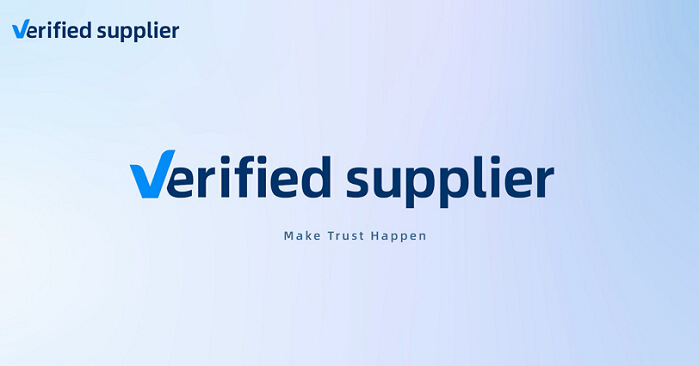How to build brand trust for B2B Seller –Alibaba Seller

Have you ever shopped for an item locally, and while other customers are cross-checking their items against the receipt, you don’t even bother to take a second look? Not because you’re rushing to catch the next bus back home but because you trust the shop and its cashiers.
Many people often confuse brand loyalty with brand trust. While they are similar and usually correlated, they differ in their original meaning. Brand trust refers to the confidence customers have in your brand. In contrast, brand loyalty underscores customers' allegiance towards your brand and their willingness to keep buying from you even when others offer similar products at the same or lower price.
Brand trust is crucial to the success of any B2B e-commerce store, as it’s challenging to compete based on price alone and remain profitable.
In this article, we delve into what brand trust means and how you can build one to improve your overall revenue and profitability.
Without further ado, let’s dive in.
Table of Contents
What is Brand Trust?
Brand trust in B2B eCommerce represents the assurance customers have when engaging with a B2B seller, believing that it will fulfill its commitments and uphold its core principles. This trust is anchored in the depth of respect and allegiance towards the brand, formed by quality delivery, direct interactions, service excellence, and strategic communications, with marketing being pivotal in shaping this perception.
In other words, brand trust is when your customers believe that you will keep your promise of selling quality products and services while communicating with them as a sign of genuine interest in meeting their needs. Unlike brand loyalty, brand trust might not necessarily lead to repeat customers, but you can rest assured your customers will say positive things about your brand whether you are physically present or not.
Building brand trust is usually easy while maintaining it is complex and time-consuming, but it’s pretty simple to lose it.
Why is Brand Trust So Important in B2B eCommerce?
B2B eCommerce is one of the most competitive businesses. Every item has at least four direct competing and alternative products. Also, since the market is highly regulated, you need to stay competitive to maximize profit. Therefore, competing solely on low prices is not only unrealistic but unsustainable. However, rather than striving to be the lowest-priced, becoming a brand buyers can trust will help you optimize your revenue without compromising profitability.
According to a report, 64% of customers rank brand trust as the second most important factor in making purchase decisions while buying from a new brand after price. Unsurprisingly, the impact of brand trust is growing, as 70% of survey respondents said trusting a brand today is more crucial than in previous years.1
Although brand loyalty is not the same as brand trust, as we mentioned earlier, research has shown that 62% of customers that trust a brand are more likely to stay loyal.2Moreover, another study showed that 75% of customers that trust a brand say they will buy the brand’s product even if it’s not the cheapest and look out to purchase new products from that brand.1
However, you must understand that cultivating brand trust is not a quick-win scheme, as it requires strategies and long-term investment. But if well-implement, fostering trust can help you boost customer retention, drive brand loyalty and generate more sales.
Key Elements of B2B eCommerce Brand Trust
Building brand trust in B2B eCommerce is quite different from a B2C venture. The primary difference is that B2B customers are usually difficult to please, and it usually requires more time and commitment for customers that buy in bulk to trust your brand. For instance, adding a complementary product for a B2C customer with two orders can drive them to develop an affinity for your brand, but that would barely make a difference for a customer that just ordered a thousand items.
We highlight five key elements of building brand trust for B2B eCommerce below:
- Product Quality
It’s almost impossible to develop trust for a brand that sells low-quality products at premium prices, regardless of its level of customer support. Price remains the primary and most important factor in purchase decisions, followed by product quality. However, the problem is not how pricey your products are but the perceived value customers derive from them.
To build your brand trust, you must ensure customers get value for their money by sourcing and delivering quality products. For instance, a premium purse that costs more than the average market price must equally have better quality than a lower-priced one. Thankfully, Alibaba.com has a lot of valuable resources that will guide you on how to source quality products. When customers believe in the quality of your products, they will find it easy to buy from you.
- Understand Customer Journey and Pain Points
Imagine a scenario where you want to partner with a manufacturer or wholesale B2B clothing seller. After narrowing your search to two companies, you booked a meeting with the sales manager. Company A doesn’t bother to get to know you and your business. They are only interested in closing the deal and sending you an invoice. In contrast, company B asked about your purchase history, challenges you typically face with shipping, the most convenient payment methods, and available discounts you can activate. Who would you instead buy from?
Many B2B sellers often forget that a human with emotions, needs, desires, and pain points is at the other end of the negotiation, even if they sell directly to businesses. According to a recent Salesforce report, 94% of customers stated that a brand's treatment of its customers influences their buying decision.3
Customers can sense when you only care about “selling them” products. While sales conversion is your ultimate goal, ensure that you understand your customers' journey and pain points first so you can connect with them emotionally.
- Customer Service
Like building an emotional connection, customer service can influence how customers perceive your brand. According to Edelman’s global survey, 56% of buyers said their experience with a brand is essential in building trust.2 Although customer service can vary across B2B eCommerce sellers, every customer values exceptional experience, quick response to their concerns and complaints, and privacy security.
Marketing doesn’t end after exchanging products for cash; B2B sellers must invest heavily in after-sales support to build a trustworthy brand. A good practice is a customer survey where customers can leave feedback about their experience shopping with a brand. Note that this is not the same as public product reviews or customer feedback. Its primary purpose is to gather data on improving customer relationships.
- Transparency
Transparency in B2B e-commerce business is crucial to building brand trust. Imagine shopping for a jar of jam in a grocery store; one clearly lists all its ingredients and expiry dates, while the other is vague; which would you trust more?
Similarly, 94% of businesses lean towards sellers who are transparent about their products, pricing, shipping, and practices. Moreover, 73% are willing to pay a premium for that clarity, much like a consumer who'd spend a bit more for a product that’s transparent about its sourcing and ingredients.4
Just as we appreciate transparency in our everyday shopping experiences, businesses do too. Being open and honest in your customer dealings builds trust and positions your brand as the preferred choice.
- Consistent Messaging
Customers have arrays of options when it comes to choosing a B2B seller due to the competitiveness of the eCommerce industry. However, brands that consistently appear on customers’ screens will most likely be remembered more than those that don’t. For instance, imagine shopping for a premium wedding ring from a brand. After delivering the product, they send you a “thank you” note, but you never hear from them again.
Another brand sent you a “Thank You” note, compelled you to connect with them on Instagram, sent you custom messages on how to prolong the durability of your wedding ring, and constantly shared marriage advice on their page. There is a high probability that the second brand will come to mind if someone asks you where to buy a wedding ring, provided the quality is the same.
Now, your messaging is a differentiating factor that can help you build trust and position you ahead of others when prices, quality, and customer services are the same.

How to Build Brand Trust Online for B2B eCommerce Business
Now that you have understood the key elements of brand trust, it’s important to know how to implement them to drive results. Here, we provide four actionable tips to build brand trust online.
1. Use a reliable and secure online platform
The first and most important factor in building your brand reputation and trust is to sell your product on a safe and secure platform. With continuous technological growth, particularly artificial intelligence and machine learning, online shoppers are more concerned with internet fraud. According to Paysafe research, 59% of consumers are more concerned about becoming fraud victims. Moreover, consumers across North America, Europe, and Latin America prioritize security over convenience when shopping online.5
While it might be tempting to build your own eCommerce store, partnering with already established B2B marketing platforms like Alibaba.com can save you money and time and help you build trust since it’s a globally reputable and secure platform.

2. Convey clear and honest communication
Regardless of your product quality and customer service level, sometimes things go wrong, and that’s completely normal. However, how you communicate with your customers can make or break your brand trust. For instance, assuming you accidentally shipped a broken item and the customers called you out on social media, rather than being defensive and banking on your existing relationship, accept responsibility and proffer solutions.
Also, you don’t have to wait until crises strike before establishing a solid communication channel with your customers. Ensure customers and prospects can reach you and respond promptly whenever they do. Fortunately, Alibaba.com offers a direct messaging channel between customers and sellers.
3. Showcase customer reviews and testimonials
Everybody loves reading product/store reviews before making a purchase decision. A 2021 Statistica report even indicated that almost 70% of online shoppers read between one and six reviews before buying a product, and only less than 10% don’t bother to read reviews before making a purchase.6 Although most business advisors promote the use of word of mouth, research has shown that 85% of buyers trust online reviews the same way they trust personal recommendations.7
Customer reviews are always a combination of competitive pricing, product quality, customer service, and communication. Your goal is not just to get customers to write reviews but to maximize your chances of getting positive reviews.
To get a positive review, you must ensure that you perform excellently in all aspects because 73% of customers trust a business more with positive reviews.7 A single negative review could make prospective buyers change their minds, so try to establish a positive all-around customer experience as much as possible. Note that most customers require extra motivation to leave reviews. You can provide incentives such as discounts or loyalty points for every review.
4. Add value and build authority through social media
Businesses appreciate partners that provide insights and expertise on social media beyond just showcasing products. For instance, If you're a textile industry supplier, you might offer content about the latest sustainable materials or production techniques. High-quality images, videos, and data-driven content can boost your organic ranking.
Moreover, engagement is key to building trust on social media. As a B2B textile seller, consider hosting social media initiatives inviting businesses to share their sustainability measures or innovative uses of your products. Take inspiration from successful campaigns like Dove's Project #ShowUS – through their focus was on redefining beauty standards, the underlying principle was to engage and resonate with their audience.8
In the B2B sphere, this could translate to showcasing businesses that have successfully integrated your products or services, driving mutual growth. Remember, a successful social media strategy doesn't require huge resources but a deep understanding of your audience's needs and preferences.
Build Brand Trust through Alibaba.com’s Verified Suppliers
Alibaba.com is one of the largest and most reputable eCommerce brands globally, with over 300 million active consumers.9 Being a trusted brand already, selling on Alibaba.com means you don’t have to worry about convincing your target customers that the platform is safe and secure. You only have to focus on differentiating your brand and building your personal reputation using the tips we covered above.
What is Alibaba.com’s Verified Supplier?
Verified suppliers are those who have undergone Alibaba.com’s rigorous verification process and have been certified to adhere to the stringent standard for quality, customer service, and reliability. If you get verified as a B2B seller on Alibaba.com, you’ll get a verification badge that showcases trustworthiness. You can learn more about how to become a verified supplier on Alibaba.com here.

Benefits of Being an Alibaba.com Verified Supplier
As a verified Supplier on Alibaba.com, you’ll enjoy numerous benefits such as:
- Enhanced Visibility
As a Verified Seller on Alibaba.com, you're given priority in search results, ensuring that your offerings are more prominent and easily discoverable by potential buyers.
- Increased Buyer Trust
Being verified signals to buyers that Alibaba.com recognizes your commitment to quality and reliability. That helps improve your brand trust from existing customers and prospects.
- Exclusive Features Access
Verified Sellers unlock exclusive Alibaba.com features, such as creating a branded storefront, and get priority in promotional campaigns.
- Wider Customer Base
With the combined benefits of enhanced visibility and increased trust, you'll be able to attract a more diverse and expansive pool of buyers.
- Enhanced Sales Potential
The combination of improved visibility, trust, and exclusive features combine to boost your sales opportunities on the platform.
Sell on Alibaba.com
Building brand trust offers numerous benefits, including increasing customer retention, brand loyalty, and optimizing revenue. However, becoming a trusted brand requires strategic plans and long-term investment – from selling your products on secure platforms to fostering clear and honest communication and using customer reviews. While brand trust can boost your revenue, it’s impossible to foster unless you partner with a trusted eCommerce brand like Alibaba.com.
When you join Alibaba.com as a seller, you have direct access to active buyers of over 40,000,000 with over 200,000 daily product inquiries across 200 countries and regions. Moreover, you’ll have exclusive access to learning resources and tools that ensure you settle fast and start generating revenue almost instantly. Besides, you’ll also enjoy 24/7 customer support to answer your queries and address your concerns.
If you really want to maximize your reach and build brand trust quickly, we recommend becoming a verified supplier.
Ready to build your brand trust, grow your customer base and optimize your revenue? Start now by registering to become a seller on Alibaba.com.com for free.
References
1. https://www.edelman.com/research/brand-trust-2020
2. https://www.edelman.com/sites/g/files/aatuss191/files/2019-07/2019_edelman_trust_barometer_special_report_in_brands_we_trust.pdf
3. https://www.salesforce.com/content/dam/web/en_ie/www/PDF/state-of-connected-customer-fifth-ed-comp.pdf
4. https://reputation.com/resources/articles/building-brand-trust-with-transparency/#:~:text=Ninety%2Dfour%20percent%20of%20customers,brand%20trust%20is%20so%20important
5. https://www.paysafe.com/en/blog/do-consumers-trust-online-payments-more-now-than-before-covid-19/
6. https://www.statista.com/statistics/1020836/share-of-shoppers-reading-reviews-before-purchase/
7. https://www.brightlocal.com/research/local-consumer-review-survey/
8. https://www.dove.com/us/en/stories/campaigns/showus.html
9. https://www.statista.com/topics/2187/alibaba-group/
Start your borderless business here
Tell us about your business and stay connected.
Keep up with the latest from Alibaba.com?
Subscribe to us, get free e-commerce tips, inspiration, and resources delivered directly to your inbox.














